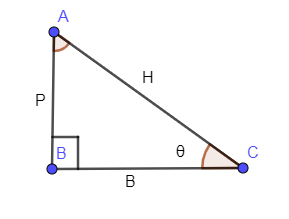Question
Question: If \( \cos \theta =\dfrac{2}{3} \) , then \( 2{{\sec }^{2}}\theta +2{{\tan }^{2}}\theta -7 \) is equ...
If cosθ=32 , then 2sec2θ+2tan2θ−7 is equal to:
A. 1
B. 0
C. 3
D. 4
Solution
First of all apply the trigonometric identity 1+tan2θ=sec2θ in the given expression. Convert the given expression in terms of sec2θ . Now, it is given that cosθ=32 and we know that the reciprocal of cosθ is secθ and then substitute the value of secθ in the given expression and solve.
Complete step-by-step answer:
The expression given in the question is:
2sec2θ+2tan2θ−7
Now, we are going to convert the above expression in terms of secθ using the trigonometric identity:
1+tan2θ=sec2θ⇒tan2θ=sec2θ−1
Substituting the above value of tan2θ in the given expression we get,
2(sec2θ+tan2θ)−7=2(sec2θ+sec2θ−1)−7=4sec2θ−9
It is given that:
cosθ=32
As we have converted the given expression in terms of secθ so we need the value of secθ . We have given the value of cosθ so from the trigonometry we know that the inverse of cosθ is secθ . So, taking the reciprocal of cosθ we get,
secθ=23
Substituting this value of secθ in the expression 4sec2θ−9 we get,
4(23)2−9=4(49)−9=9−9=0
From the above calculation, the value of the given expression is 0.
Hence, the correct option is (b).
Note: In the above solution instead of using the identity 1+tan2θ=sec2θ we can substitute the value of the tan θ in the given expression 2sec2θ + 2tan2θ – 7. Now, we can find the value of tan θ as follows:
cosθ=32
In the below diagram, we have shown a triangle ABC right angled at B along with an angle θ .

In the above figure, “P” stands for perpendicular with respect to angle θ, “B” stands for the base with respect to angle θ and “H” stands for the hypotenuse with respect to angle θ.
We know that, cosθ is equal to base divided by hypotenuse so using Pythagoras theorem we can find the perpendicular of the triangle.
cosθ=HB
H2=B2+P2⇒9=4+P2⇒P2=5⇒P=5
From the above calculation, we can find the value of tanθ :
tanθ=25
Substituting this value of tanθ in the given expression we get,
